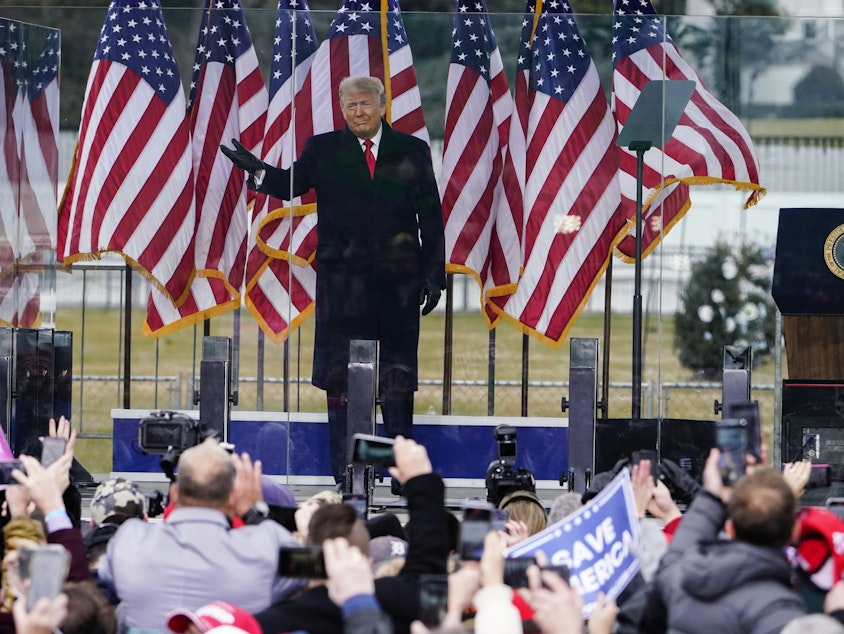Judge rejects Trump's bid to block release of Jan. 6 documents

A federal judge has denied former President Donald Trump's request to block documents from being handed over to a House committee investigating the Jan. 6 riots at the U.S. Capitol.
In a ruling issued Tuesday, U.S. District Court Judge Tanya Chutkan said the records, which are held by the National Archives, can be released to the panel overseeing the probe into Jan. 6.
Updated November 10, 2021 at 9:04 AM ET
"Accordingly, the court holds that the public interest lies in permitting—not enjoining— the combined will of the legislative and executive branches to study the events that led to and occurred on January 6, and to consider legislation to prevent such events from ever occurring again," Chutkan wrote.
She added that Trump "is unlikely to succeed on the merits of his claims or suffer irreparable harm, and because a balance of the equities and public interest bear against granting his requested relief."
Sponsored
Records from the archives are currently set to be released to the committee on Friday. Following Tuesday's ruling, attorneys for Trump quickly filed notice of an appeal.
Trump had filed suit last month seeking a preliminary injunction to block the records from being released. He called the House panel's request for records a "vexatious, illegal fishing expedition" that was "untethered from any legitimate legislative purpose."
The former president had claimed executive privilege — a concept that protects certain documents and conversations from public disclosure — still applies to a former presidential administration.
Trump has also used the same claim of executive privilege to encourage former members of his administration subpoenaed by the House committee — including former White House chief strategist Steve Bannon and former chief of staff Mark Meadows — not to cooperate with the investigation.
During a hearing in the case last week, Trump attorney Justin Clark argued that not allowing the former president to invoke executive privilege would harm the institution of the presidency. Executive privilege largely sits with the current president, defense attorneys for the Jan 6. committee and National Archives argued.
Sponsored
President Biden has said he supports the release of the documents.
House Speaker Nancy Pelosi weighed in Wednesday, saying the district court delivered an "important victory for the Constitution, the rule of law and the American people." Pelosi went on to defend the Jan. 6 panel's work, led by Chairman Bennie Thompson, D-Miss., and ranking Republican Liz Cheney of Wyoming, to ensure that an assault on democracy never happens again.
"No one can be allowed to stand in the way of the truth – particularly not the previous President, who instigated and encouraged the insurrection. As the ruling states, 'Presidents are not Kings, and plaintiff is not President,'" Pelosi said.
According to recent court filings, Trump was seeking to block call logs, drafts of remarks, and speeches and handwritten notes from Meadows and others.
Speaking to CNN Tuesday night, Thompson called Chutkan's ruling "a big deal." The chair of the House select committee in charge of the Jan. 6 probe said Trump should "man up" and stop behaving like a "spoiled brat."
Sponsored
"I look forward to getting this information," Thompson said. "I look forward to our investigators going through it with a fine-tooth comb to make sure that our government was not weaponized against its citizens."
Since the committee was formed in July and began its work looking into the events leading up to and on Jan. 6., Trump has repeatedly attacked the panel's work.
The former president has also continued to promote unfounded claims about election fraud — a notion that fueled the Jan. 6 attacks on the Capitol as Congress was certifying the election in favor of President Biden. [Copyright 2021 NPR]

